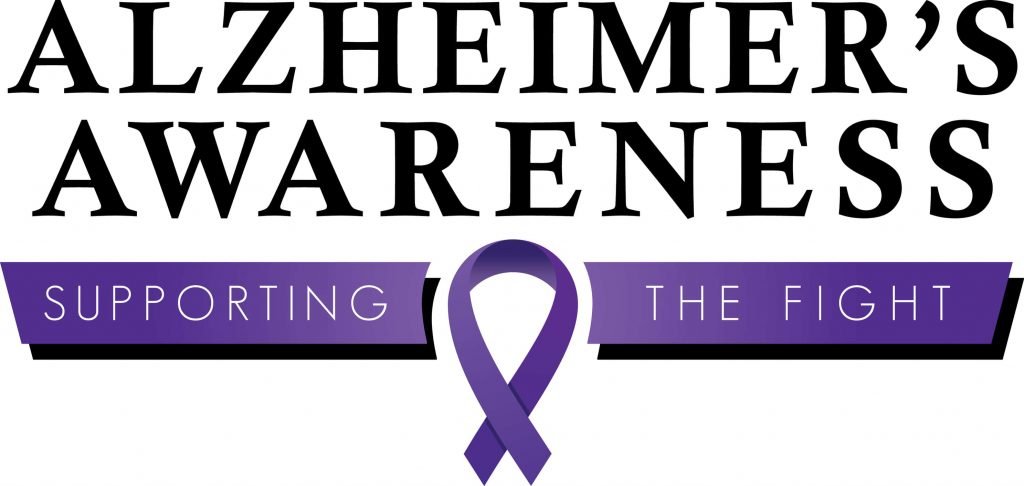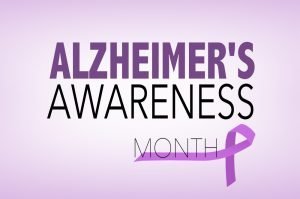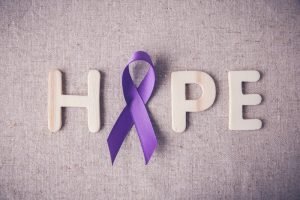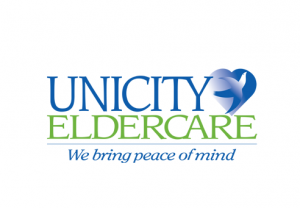“Alzheimer’s And Brain Awareness Month“ is declared each June by the Alzheimer’s Association to help raise awareness about the disease, as well as show support for the millions of people worldwide living with Alzheimer’s or another form of dementia. It’s also a time to recognize caregivers for the support they provide to those living with Alzheimer’s and other forms of dementia.
According to the Alzheimer’s Association website, “the more people know about Alzheimer’s, the more action we inspire!”
Every three seconds someone in the world develops dementia, with nearly 50 million people currently living with the disease worldwide. Perhaps more alarmingly, that number is expected to reach 132 million by 2050.
Facts About Alzheimer’s Disease And Dementia
Dementia is a brain condition that affects parts of the brain that control thought, memory, and language. and Alzheimer’s disease is the most common form of dementia. While the risk of developing Alzheimer’s disease increases with age, Alzheimer’s disease is not considered a “normal” part of aging. Most people living with Alzheimer’s disease are older than 65 years; however, people younger than age 65 can develop Alzheimer’s disease (though it is not common.)
One of the first steps toward raising awareness is educating people on important facts concerning the progression of the illness and the number of older adults that it affects around the world. Here are a few essential facts that everyone should know as we head through Alzheimer’s and Brain Awareness Month:
- Many Seniors Living With Alzheimer’s Do Not Know They Have It: the early signs of dementia include problems speaking or finding the right words during conversations, behavioral changes and difficulty with daily tasks like dressing. However according to the Alzheimer’s Association, even after these symptoms are recognized by a health professional, only 45% of patients are told by their doctors of their diagnosis. The failure to disclose the diagnosis to patients and their caregivers can prevent seniors from receiving the early treatment they need.
- Dementia Impacts More People Ever Year: it is estimated that around 44 million people in the world are currently living with dementia. While this is already a high number, it’s supposed to continue to increase over the years, rising to 135 million by 2050.
- Alzheimer’s Often Leads To Premature Death: Many people know that Alzheimer’s disease causes debilitating memory loss that can make daily tasks difficult. However, it’s essential that individuals are aware that Alzheimer’s is actually the sixth leading cause of death among the U.S. population, explained the Alzheimer’s Association. As there is currently no cure for dementia, the disease is the only illness in the country’s top 10 causes of death that can’t be prevented or even slowed, noted the source.
Normal Memory Loss – Or Alzheimer’s Disease/Dementia?
Although everyone’s brain changes as they age, it’s important to understand that Alzheimer’s disease is not a normal part of aging. Memory loss is typically one of the first warning signs of Alzheimer’s disease, but occasionally forgetting words or names does not mean a person has Alzheimer’s. There are other signs that someone in the early stages of Alzheimer’s disease may experience in addition to memory problems.
In the early stages of the disease, these can include:
- Getting lost in familiar places
- Having trouble handling money and paying bills
- Repeating questions
- Taking longer to complete normal daily tasks
- Displaying poor judgment
- Losing things or misplacing them in odd places
- Displaying mood and personality changes
In our blog article, “The Difference Between Age-Related Memory Loss And Alzheimer’s Disease, Unicity Healthcare discusses in length this topic, and how to determine if your aging loved may need to be evaluated for dementia-related diseases.
When To Consider A Dementia Evaluation
It’s time to consult a doctor when memory lapses become frequent enough or sufficiently noticeable to concern you or a family member. If you get to that point, make an appointment as soon as possible to talk with a primary physician to have a thorough physical examination. Your doctor can assess your personal risk factors, evaluate your symptoms, eliminate reversible causes of memory loss, and help obtain appropriate care. Early diagnosis can treat reversible causes of memory loss, or improve the quality of life in Alzheimer’s or other types of dementia.
You might consider having your loved one screened for dementia if they have begun having difficulty with the following:
- Remembering new things
- Dealing with numbers and logical thinking
- Performing familiar activities
- Understanding the passage of time:change of months/seasons
- Changes In Vision Or Perception
- Carrying On A Conversation
- Losing Things
- Poor Decision Making
- Socializing/Hobbies
- Drastic Change In Personality Or Mood
Memory Care At Unicity Healthcare
Unicity Healthcare takes an individualized approach to caring for adults with Alzheimer’s or Dementia. We understand that no two clients are the same, and, as such, we develop an individualized service plan, incorporating all aspects of the person’s life and family. There are several steps to our process, and each is important in creating the Unicity Homecare approach, one that stresses personalization, dedication and quality care.
All our staffs undergo regular training sessions on Alzheimer’s and other form of dementia related disease. Our Care Managers are dementia experts/ practitioners and they have significant experience dealing with Alzheimer’s clients and their family. Our in depth care assessments are customized and include, among several other cognitive tests, an interpretation of Folstein’s Mini-Mental State Exam. Safety being a major concern when dealing with Alzheimer’s people at home, our assessment includes a review of the elderly’s home environment. Because the person may experience changes in judgment, orientation to time and place, behavior and senses, our Care Managers make sure the home environment is safe and supportive.
Raising Awareness By Getting Involved
There are many ways to get involved if you want to support the Alzheimer’s education and awareness cause during Alzheimer’s and Brain Awareness Month. One way is to contact your local Alzheimer’s Association to request more information at www.alz.org.
- Start by “going purple” to raise awareness about Alzheimer’s and Brain Awareness during the month of June. Changing your Facebook page to purple, or add a frame to your Facebook profile picture can raise awareness and show your support for the cause; or simply wearing purple are just a few of the ways to get involved.
- By sharing a photo on Instagram or Twitter using the hashtags #ENDALZ or #EndAlzheimers. Share your story on social media with those hashtags and you may be featured on The Alzheimer’s Association’s webpage.
- Follow the @alzassociation to stay tuned in to all the ways you can take action in June.




 We’re Here To Help
We’re Here To Help